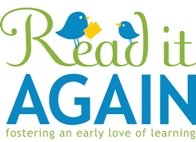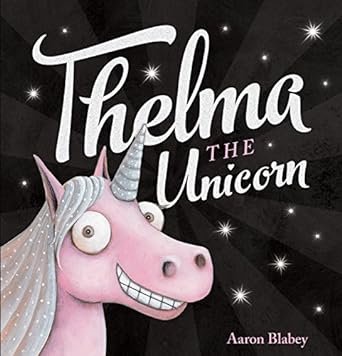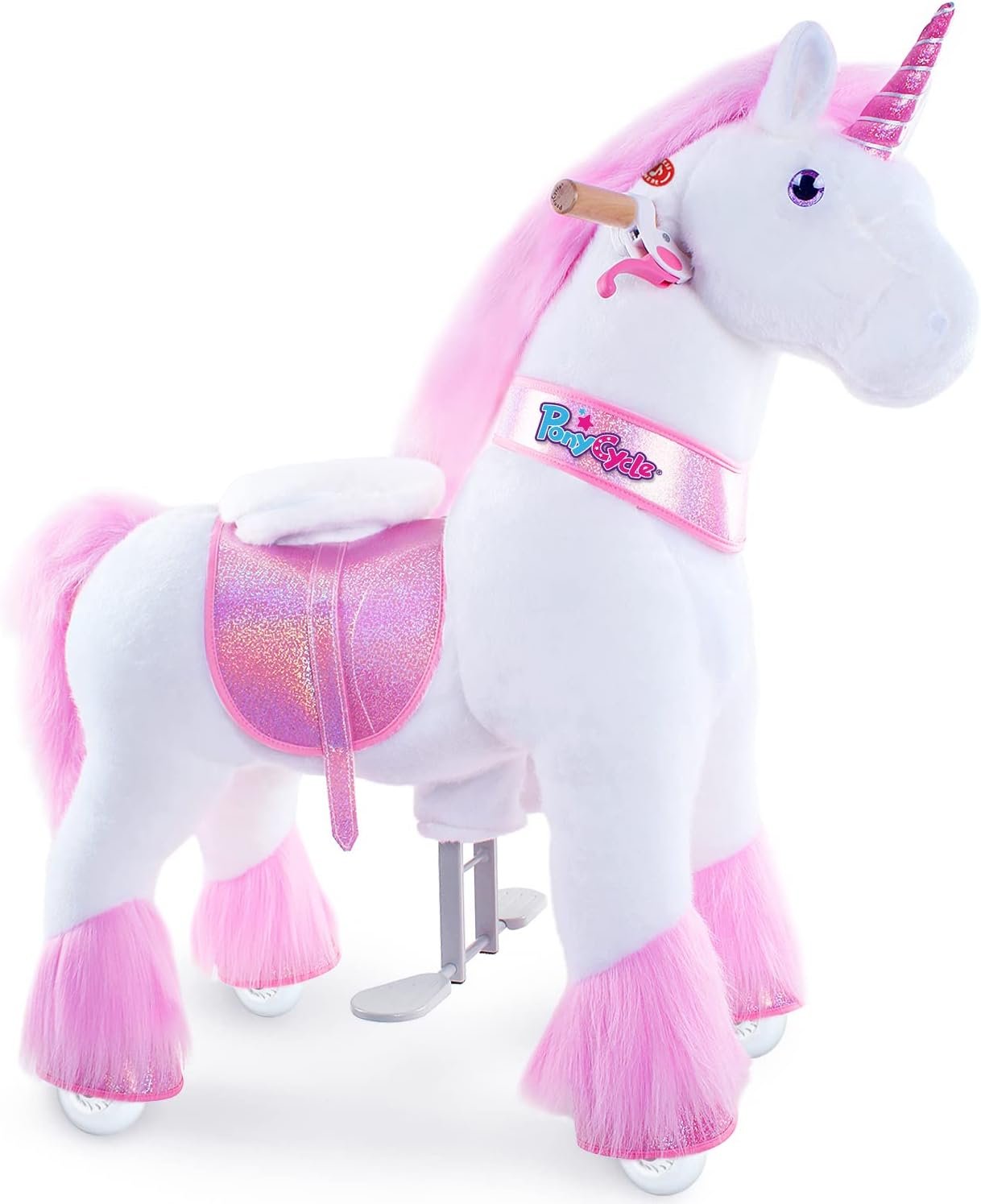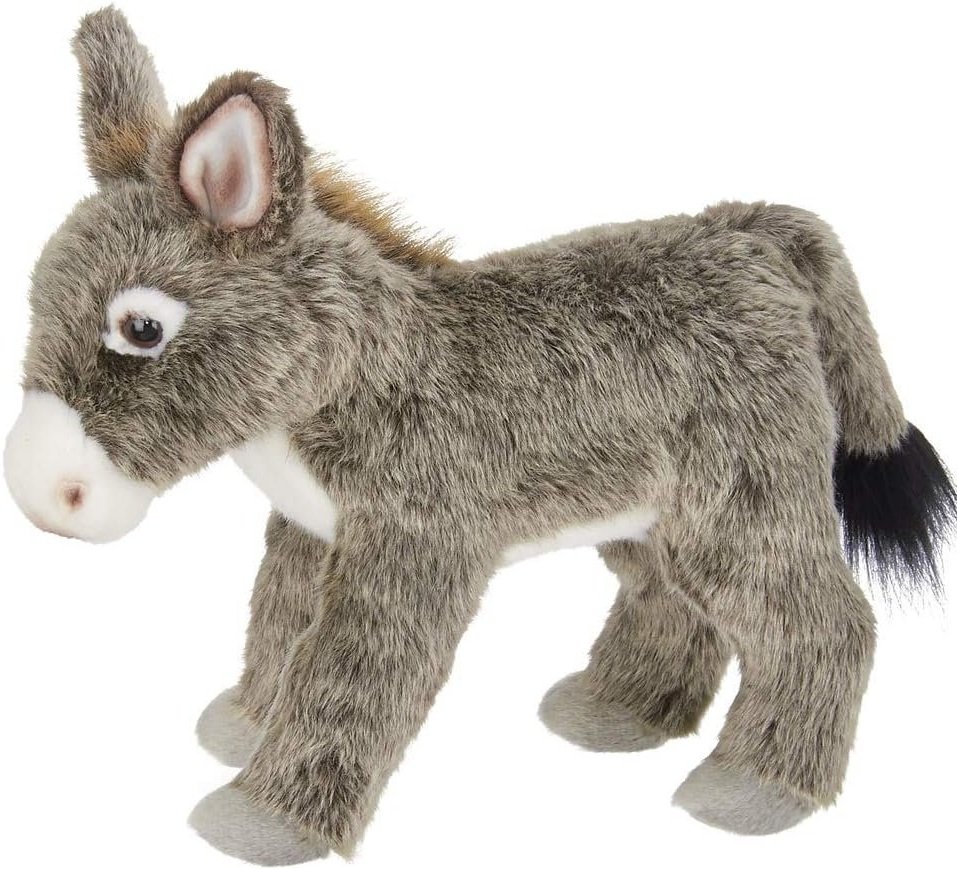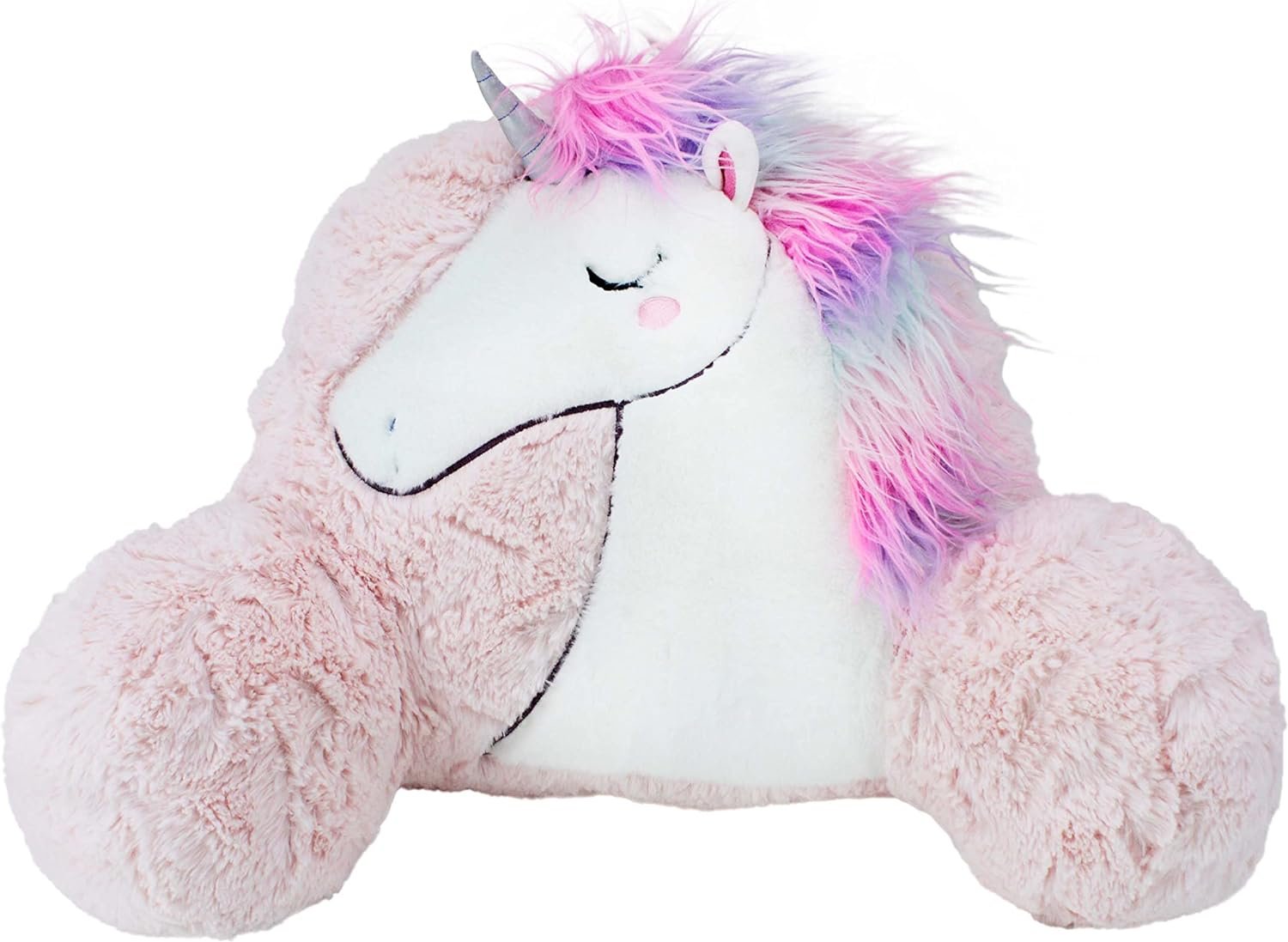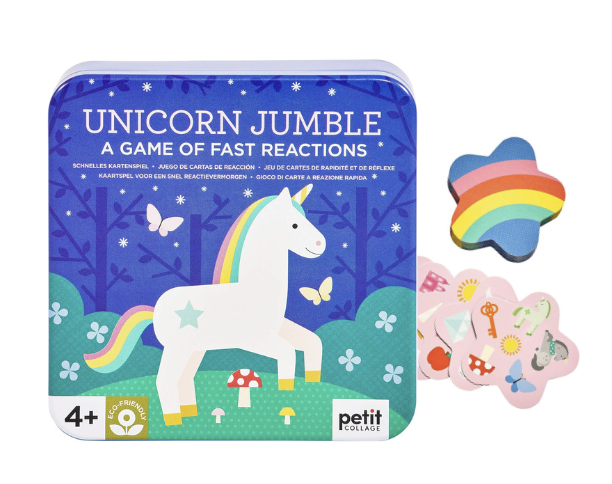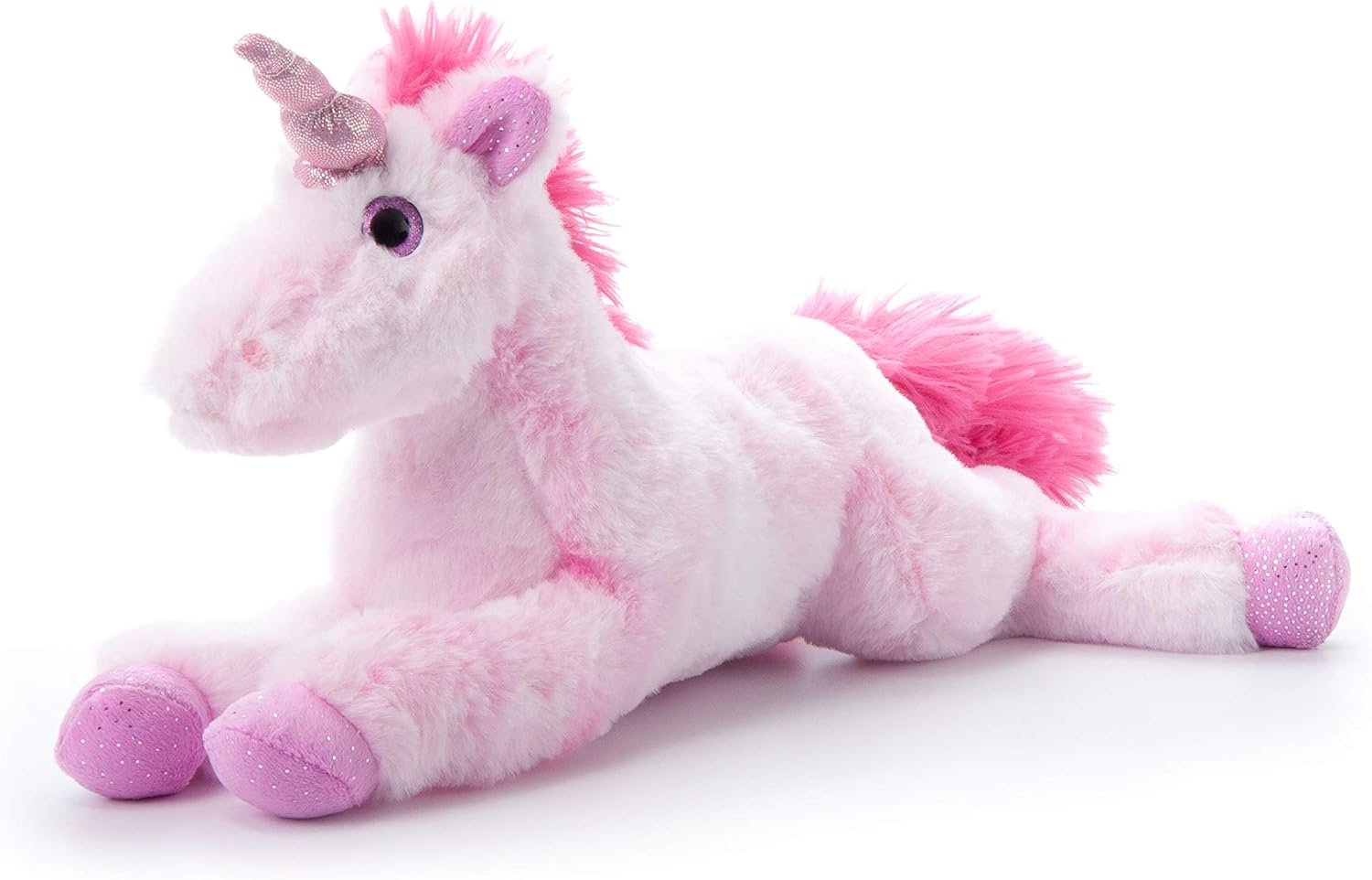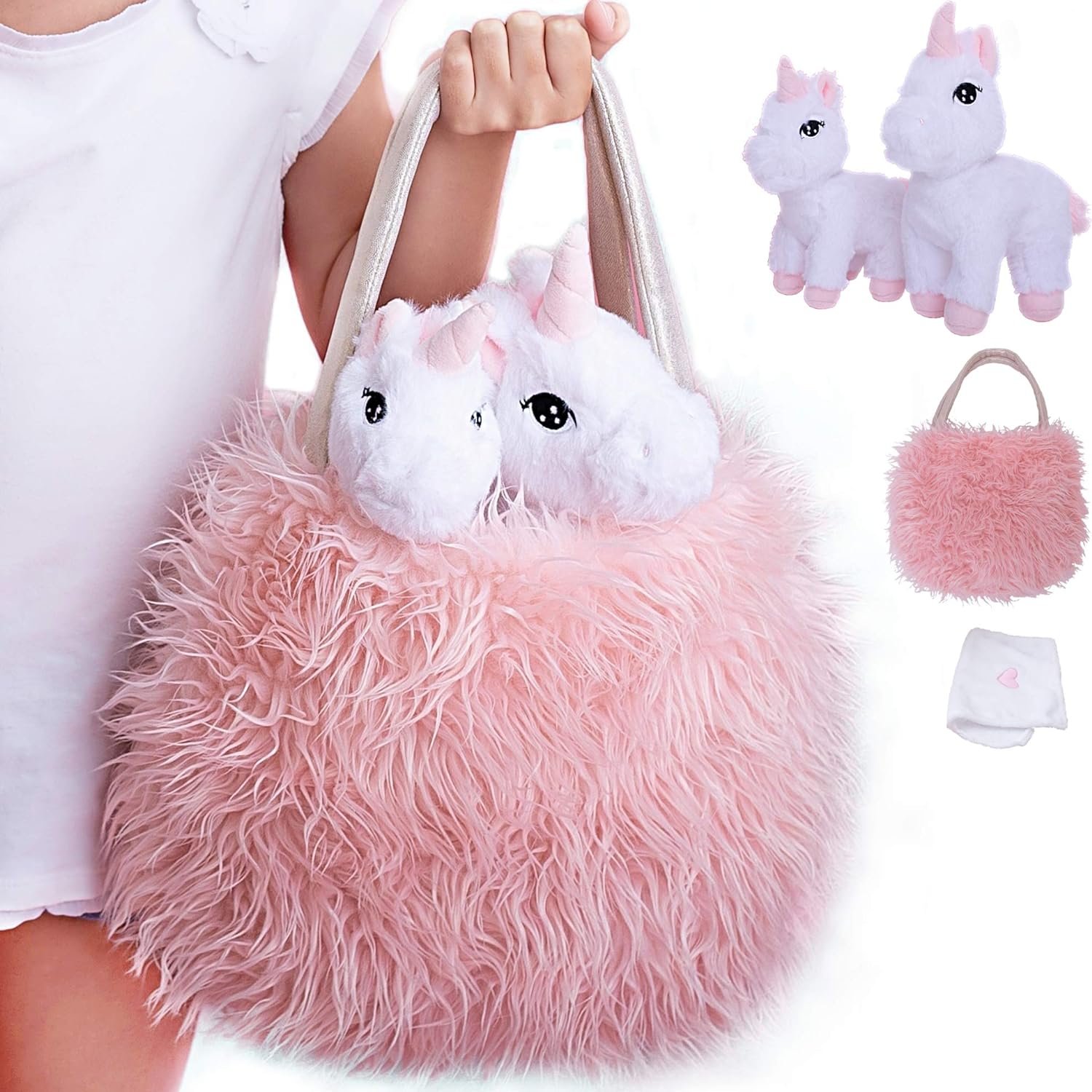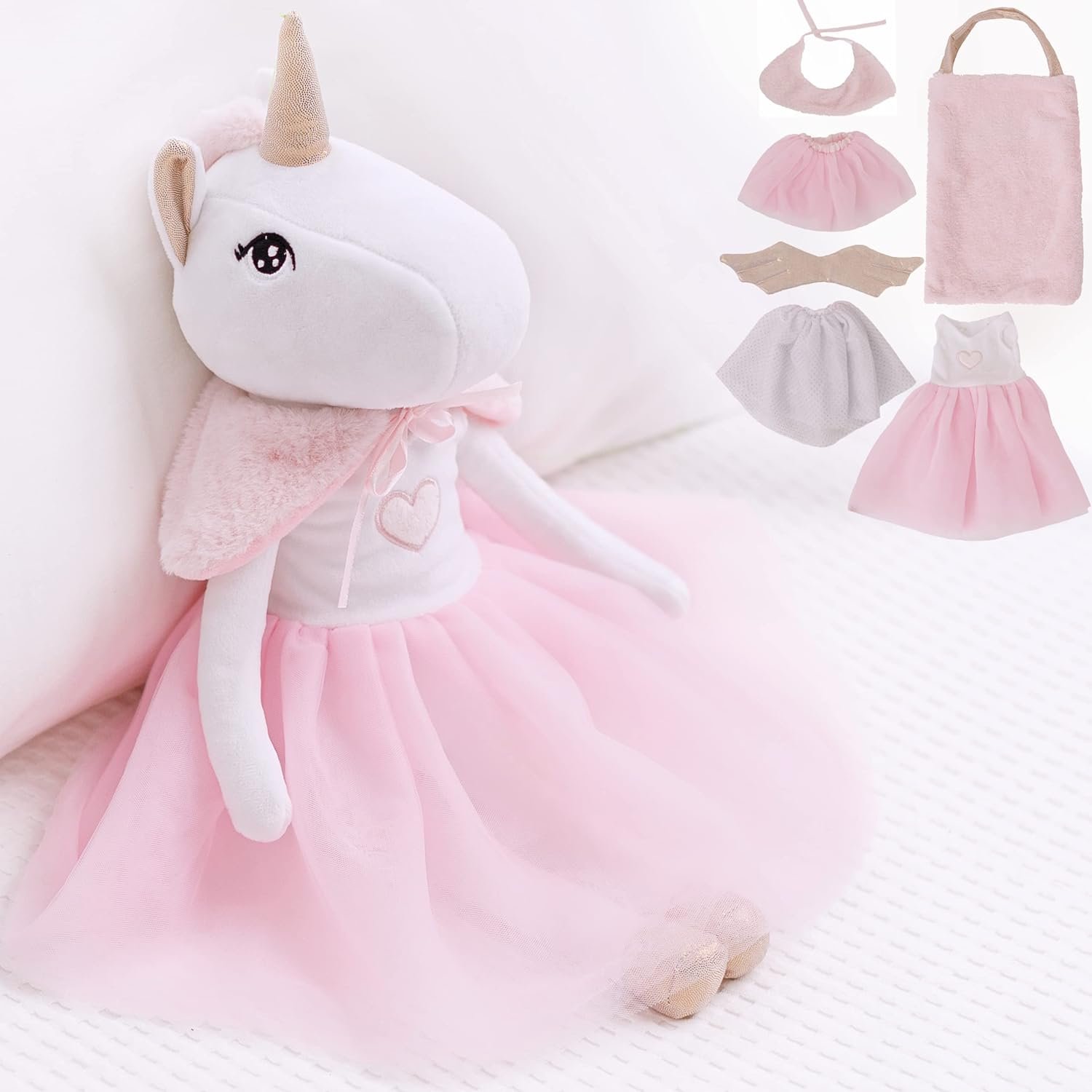5 Things You Can Teach Your Child as You Read Thelma the Unicorn
Extend the Learning with
Story-Based Play
Adding an element of play is another way to deepen your child’s understanding of concepts within and beyond a story. According to Hall (1991), young children often develop advanced literacy skills when they engage in play related to a familiar story. Many complex literacy skills develop naturally when the story and play intersect, setting the stage for your child to learn to read and write.
It’s easy. Take a great story, gather toys that align with that story, and get out of the way. Your child will do the rest. The goal is to allow the play to evolve naturally. You’ll be surprised by the amount of learning transferred and reinforced through this type of play.
Here’s Why We Love These Specific Products:
They have direct connections to the book.
They reinforce new vocabulary.
They encourage imaginative play
They make it easy to re-enact parts of the story.
They often take learning beyond the confines of the story.
Few require batteries, screens, or electricity.
If you purchase something through one of our links, you won't pay a penny more, but we’ll earn a tiny commission which helps keep the lights on.
Meet the Author
Author / Illustrator Aaron Blabey's works often blend humor, heart, and important life lessons, making them favorites among children, parents, and educators alike. With a background in acting and a keen understanding of audience engagement, Blabey brings a dynamic and theatrical quality to his writing while his illustrations a bit whimsical. His ability to create memorable characters and craft stories that resonate with children has established him as a beloved figure in contemporary children's literature.
Click Here to Hear the Author Read the Story
It’s INCREDIBLY Funny!
Meet Thelma, a pony that longs to be a unicorn. When she plays the role of a unicorn, her as sparkly horn and glittery mane are loved by everyone. Thelma is not your average unicorn; she's a special character that captures the imagination of children and adults alike. This story makes it easy discuss big themes including friendship, self-acceptance, and appreciating what you already have.
Listed below are 5 educational concepts to sneak in as you read this book with your child.
Expressive Language
The book's playful language and expressive illustrations can enhance a child's language skills. Engaging in discussions about the story can help expand vocabulary, improve comprehension, and develop expressive language abilities.Friendship
Thelma's journey also involves the role of friends and their unconditional support. Parents can discuss the value of friendship, loyalty, and how true friends appreciate each other for who they are.Positive Body Image
Thelma initially wishes to be someone else, thinking it would make her happier. This can open up discussions about positive body image and the idea that everyone is special and valuable just as they are.Self Acceptance & Individuality
Thelma, the main character, goes through a journey of self-discovery and learns to embrace her uniqueness. This theme encourages children to accept themselves for who they are, fostering a positive sense of self and promoting individuality.Imagination & Creativity
Thelma's adventure involves a touch of whimsy and imagination. Encouraging children to explore their own creativity and imagination through the story can contribute to cognitive development and creative thinking skills.
